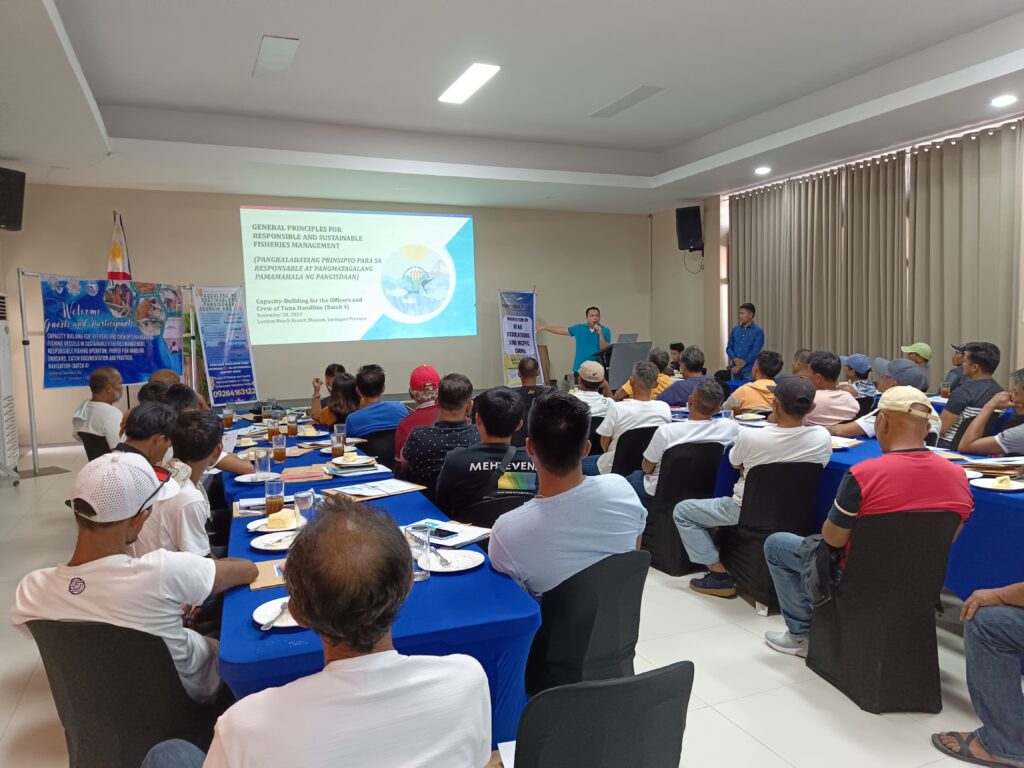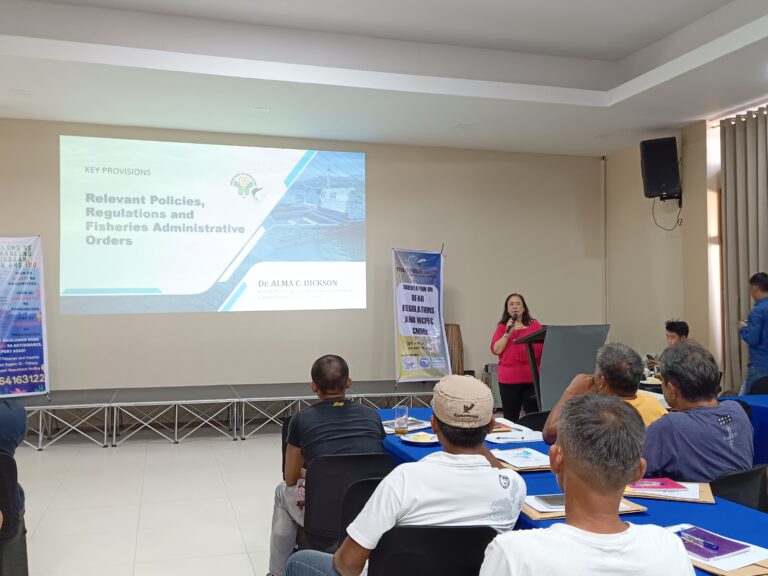To raise awareness on the importance of sustainable fisheries management, the Bureau of Fisheries and Aquatic Resources (BFAR) in partnership with the SOCSKSARGEN Federation of Fishing and Allied Industries, Inc. (SFFAII), facilitated a training on the Relevant Fishery Laws, Rules and Regulations for the 4th batch of Commercial and Municipal Tuna Handliners on November 28, 2023 at London Beach Resort and Hotels.
Mr. Peter Erock Cadapan, MFDC Training Head discussed the General Principles for Responsible and Sustainable Fisheries Management. He explained that the Fishers’ privilege to fish carries with it the obligation to do so in a responsible manner–it is fishers’ obligation to abide with the laws of the sea. Mr. Cadpan also explained that the Fishery rules and regulations are designed to prevent overfishing and ensure the sustainable exploitation of fish stocks. By setting catch limits, size restrictions, and fishing seasons, these regulations help maintain healthy fish populations and prevent the depletion of species.


